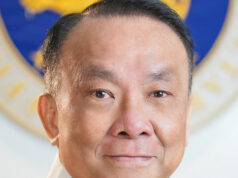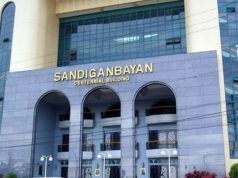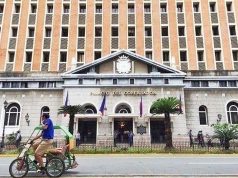Congress ratifies Konektadong Pinoy bill

By Kenneth Christiane L. Basilio, Reporter
THE PHILIPPINE Congress on Monday ratified a measure seeking to expand internet access in the country by allowing the seamless entry of new industry players and encouraging investments into digital infrastructure.
Senators and congressmen separately ratified the priority measure via voice vote during their respective plenary sessions. It will now be sent to the Malacañang for President Ferdinand R. Marcos, Jr.’s signature.
“The State shall pursue an open-access policy providing an accessible and competitive environment to all qualified participants in all segments of the data transmission network, and encouraging investments in the digital infrastructure for the development of reliable and affordable data transmission networks, comparable to the best of the world,” according to the version of the bill approved by the bicameral conference committee, a copy of which was obtained by BusinessWorld.
The Philippines is seeking to resolve the country’s digital divide gap, which remains a challenge, especially in remote areas, the Department of Information and Communications Technology (DICT) said last year. About 18.3 million Filipinos are deemed as financially incapable of availing at least one gigabyte worth of internet data per month, according to the 2024 Internet Poverty Index.
The Southeast Asian nation ranked 66th in mobile speeds globally and 52nd for fixed broadband connection rates, based on an April report by connectivity analysis firm Ookla.
The DICT should formulate policies that could help the Philippines foster an “open-access approach” in promoting healthy competition among internet providers, according to the bill.
“[It] should also pursue plans… to incentivize data transmission industry participants to invest, adopt, roll out, implement, establish, own, maintain, operate or utilize new and next-generation technologies, prioritizing unserved or underserved areas,” the measure said.
The National Telecommunications Commission (NTC) would be the internet industry’s regulatory body and should promote “fair and open” competition over the sector, the proposed law said. All industry players should register with the regulatory body.
“If implemented properly, the bill has the potential to bring real improvements to internet access and digital inclusion, particularly for Filipinos in underserved and geographically isolated areas,” Ronald B. Gustilo, national campaigner for Digital Pinoys group, said in a Viber message.
The costs of internet services and their components should also be made transparent, according to the proposal, allowing the agency to ensure fair pricing of data transmission companies.
All internet service providers should also comply with global cybersecurity standards to ensure data safety. The DICT would conduct performance audits of industry players to ensure their compliance.
The DICT and NTC should also formulate a “spectrum management policy framework” to make sure that the internet spectrum is efficiently used by internet service providers within three months of the bill’s approval.
Filipinos are entitled to reliable internet services, having also the rights to receive timely and accurate monthly bills from providers and be provided the timely correction of billing errors, the bill stated.
The NTC would be empowered to impose daily fines of up to P2 million ($35,830) on data service providers failing to meet proposed performance standards, with persistent violators facing a three-year ban from offering transmission services.
“We hope that the government will ensure strong coordination among agencies, transparent use of funds and clear accountability mechanisms for this bill to succeed,” said Mr. Gustilo. “It’s also important to promote competition in the telecom sector to truly drive down costs and improve service quality.”



